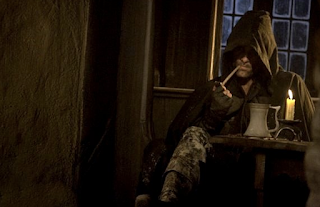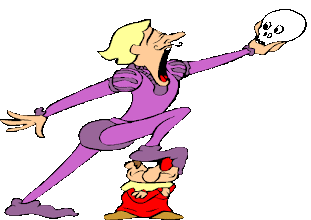Writing as a practice
Although I have been writing all my life, I began writing fiction seriously in the last five years. It began as a creative practice, like my crochet and baking. Still is–it helps me stay balanced and maintain a positive outlook. As I gained confidence and started sharing my work, I found kindred spirits online and joined discord groups for writers. In this way, I share my practice with others who are engaged in the same activities. Online interaction has been a necessity in the last few years, given that we were often in lockdown, but it would have been my choice as a neurodivergent individual who can struggle in social situations (especially with strangers).
Emerging from the Cave
I relish the time I spend alone writing. But the myth that writing is a solitary activity is just that … a myth.
The writing part–thinking and typing–can be solitary (although online writing sprints with your pals is a fantastic way to work on a first draft). Yet, the many parts of being an author involve interacting with others: writers, editors, agents, cover artists, PAs, publishers or fellow indie authors, bloggers, bookstagrammers, and on and on. And even writing your drafts is better with encouragement and feedback: there are alpha and beta readers, ARC readers and street teams–as well as writing critique groups, Facebook groups, and discord communities.
You may think the time you spend on these interactions will take away from your writing time, but it is a necessary part of being an author. And the experiences can enrich your skills and lead to opportunities.
Finding Groups
Small groups work better for me, but I enjoy being in a couple of larger interest groups. There are any number of online classes, writing experts, and coaches who can set you up with a critique group. It is harder to find affordable or free options, but you can search for writers' groups on Facebook and Discord, many of which don't need a paid subscription. Those options, instead, require more of a DIY approach that can achieve good results. They are great for baby authors and those who don't have a lot of disposable income to throw around (that is, most of us).
For my purposes, there’s a supportive Facebook group for writers who are moms where they understand the challenges mom-writers face. It's a great place to lurk and share in my peers’ successes and setbacks. I also joined the FaRoFeb Facebook group and discord server for authors–one of the best decisions I made. It’s not a giant group, but big enough that some of the discord channels move very fast. However, I can poke along at my speed and keep up with a wonderful group of talented and dedicated authors who embrace all of our quirky Fantasy Romance interests and tangents.
These groups form communities that lift up their members and make us all better. The more you participate, the better experience you will have, but it's all right to start out slow.
Learning and Growing
I treasure the interactions I have with my writer friends. We have learned the importance of open communication and we strive to balance support with critique. It's not easy, but we keep working at it, giving ourselves and each other grace when we don't live up to our high ideals. This small but mighty group is my ride-and-die. And I’m a better person, friend, and writer because of them.
I’ve learned a few things along the way. I’ll share them here, with the understanding that your journey may be very different.
- I’ve learned to pay attention to my needs and abilities. Smaller groups and opportunities are more rewarding for me. You may be different - I have a friend who went to a large writers’ convention and loved every minute of it. Work within your social battery settings and consider what helps you recharge.
- I’ve learned that setting boundaries and making rules (or simply some agreed-upon ideas for how to be together) can make the community experience better. Authors are a prickly breed and misunderstandings and hurt feelings can happen. But we can also be the most supportive and loyal creatures in the world!
- I’ve learned that sharing my work isn’t scary. It has increased my confidence and allowed me to see my stories more objectively, which has improved my revision skills. It’s been a mindset shift. I’m not killing darlings or offering up my babies; I’m working on projects that are shaped with feedback and advice to make them the best they can be.
- I’ve learned what I can contribute in providing feedback to my writer friends. I’m a teacher by training and am a pretty good copy editor. I also love to be a cheerleader by looking for ways that someone’s story bones could be improved. It makes me so happy!
- I’ve learned to be more selective in my writing critique partners. I made a couple mistakes in the beginning by offering to provide feedback on projects that weren’t a good fit. Now that I understand better what I like, I can ask up front about the work so I can make an informed decision.
I didn't realize when I started this journey how much I would learn about myself--both the good and the bad. Pushing myself out of my comfort zone, challenging myself to do better happens most effectively when I have supports who will cheer me on and pick me up when I fall.
Feeling blessed
As you saw in Kristine’s post this week, the FaRoFeb group released an exciting anthology on Tuesday! I am grateful to have a story in the collection–alongside this wonderful group of authors (and don't forget to read Grace Draven and Jeffe Kennedy’s introduction). The community exemplifies the magical possibilities of collaboration, support, and good humour that can make a good experience great.

%20(15).png)












